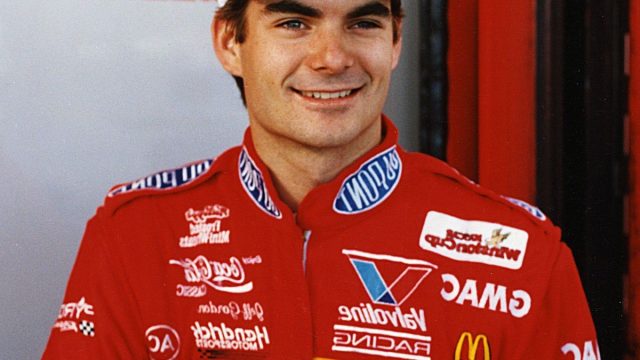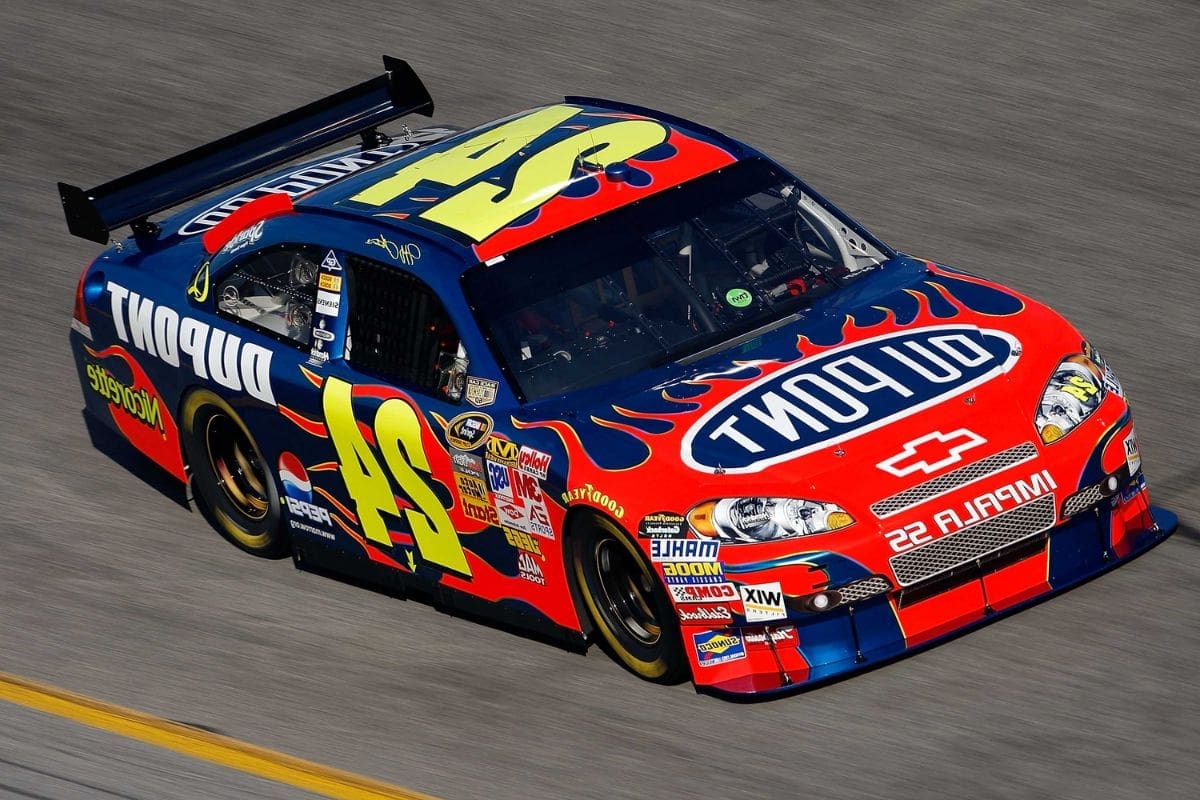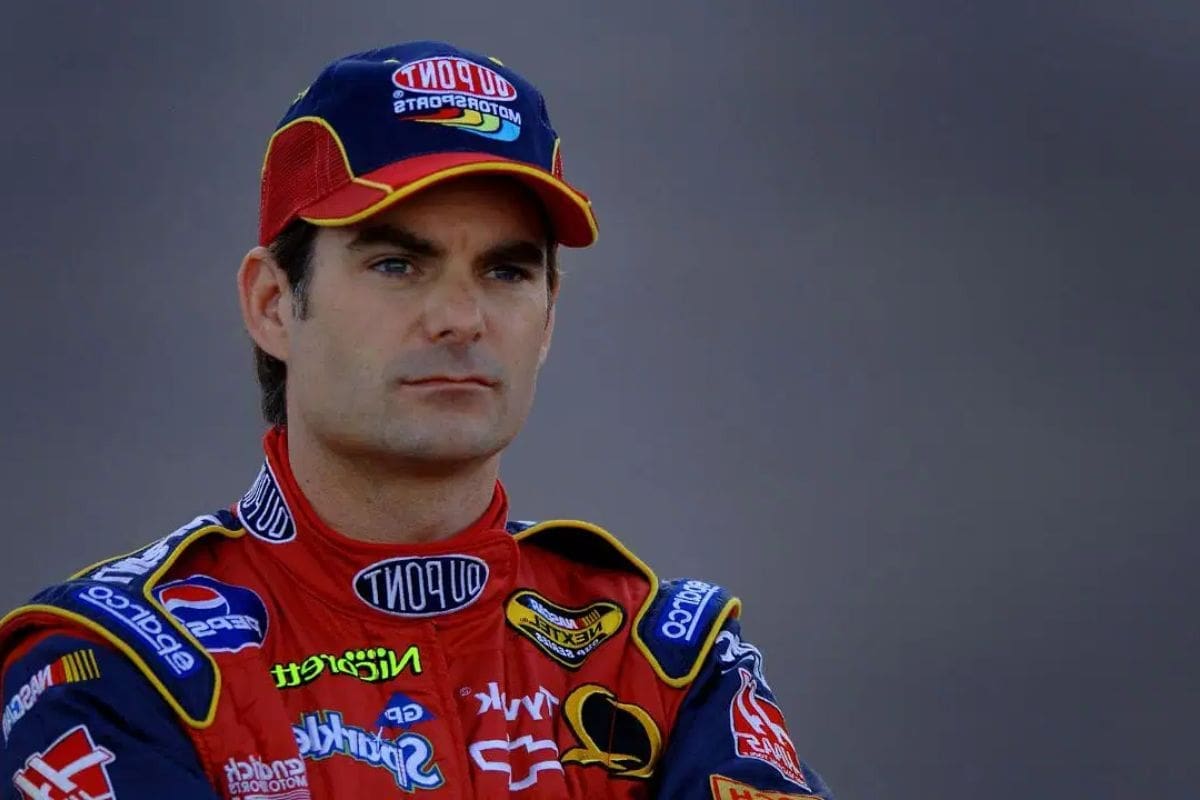Jeff Gordon Reveals: NASCAR’s highly anticipated charter deal has hit a roadblock, as racing legend Jeff Gordon recently revealed a smoking gun that has delayed negotiations.
Teams are demanding a better revenue split, citing concerns over rising operational costs. The Race Team Alliance (RTA) holds significant leverage in these discussions, as they represent the majority of NASCAR teams.
Meanwhile, NASCAR stands firm amid lucrative TV deals, leaving the future of the charter deal uncertain.
The revelation by Jeff Gordon leaves fans and industry insiders intrigued, as they eagerly await further developments in this pivotal negotiation.
Key Takeaways
- Revenue sharing and financial concerns are causing delays in the charter deal negotiations.
- The current model favors top teams financially, leading to a need for a fair revenue split.
- Uncertainty surrounding the negotiations is impacting sponsorship deals and team solidarity.
- The delay in the charter deal could pose a threat to the long-term sustainability and viability of NASCAR.
Teams Demand Better Revenue Split
Teams in NASCAR are demanding a more equitable revenue split as negotiations continue, with the delay in response from NASCAR indicating the potential leverage held by the teams. Revenue fairness has become a significant concern for teams, as they believe the current distribution model favors the sport’s top teams and leaves smaller teams struggling financially. The teams are using their collective bargaining power to push for a more balanced revenue sharing system.
Negotiation tactics play a crucial role in these discussions. By demanding a fairer revenue split, teams are asserting their value and importance to the sport. The delay in NASCAR’s response suggests that the teams may have significant leverage in these negotiations. NASCAR recognizes the need to address the teams’ demands and is carefully considering its options.
Charter agreements, which provide teams with guaranteed entry into races and a share of the revenue, have added weight to the teams’ financial demands. The charter system was implemented to provide stability and long-term value for teams, but some believe that the current revenue split does not align with the benefits provided by the charters.
Teams are seeking a revenue split that reflects their contributions to the sport. They argue that a more equitable distribution of revenue would not only benefit the teams financially but also contribute to the overall growth and sustainability of NASCAR. As negotiations continue, it remains to be seen how NASCAR will respond to these demands and whether a fairer revenue split can be achieved.
Concerns Over Rising Operational Costs
The escalating operational costs of running a NASCAR team have become a major concern for the sport, prompting teams to evaluate their financial sustainability and consider potential measures to address the issue. The rising costs, combined with insufficient returns, have led teams to face budget constraints and dwindling reserves, putting their financial sustainability at risk. In order to tackle this challenge, teams are focusing on improving operational efficiency and resource management.
Here are three key areas of concern:
- Budget constraints: Teams are finding it increasingly difficult to manage their budgets due to the rising costs of equipment, technology, and personnel. This has led to a strain on their financial resources and a need for more effective cost control measures.
- Sponsorship woes: Securing sponsorships has become a challenging task for teams, as companies are becoming more selective in their partnerships. The lack of strong sponsorship deals further exacerbates the financial strain on teams.
- Resource management: Teams are evaluating their resource allocation and looking for ways to optimize their operations. This includes streamlining their workforce, consolidating departments, and maximizing the use of technology to improve efficiency.
In light of these concerns, teams are taking a hard look at their financial sustainability and considering drastic measures such as potentially skipping races next season. The sport as a whole must find solutions to address the rising operational costs in order to ensure its long-term viability.
RTA’s Leverage in Charter Negotiations
Negotiations for the charter deal between NASCAR and the Race Team Alliance (RTA) have gained momentum, with the RTA asserting its leverage to ensure a mutually beneficial agreement that addresses the long-term efficiency and sustainability of the teams. The RTA’s push for a favorable charter deal stems from several key factors that impact the teams’ overall operations and financial stability.
One of the primary concerns for the teams is the need for team unity, as a cohesive and united front can lead to stronger negotiation power and better outcomes. Additionally, financial security is a critical aspect, as teams are seeking a deal that provides them with a fair share of the revenue pool, ensuring their financial stability and growth.
Furthermore, the sponsorship impact is a significant consideration. Teams want to ensure that the charter deal allows them to attract and retain sponsors, who play a vital role in funding their operations. A favorable agreement would provide teams with the necessary resources to compete at the highest level and maintain a competitive advantage.
Another key aspect is revenue equality. Teams are advocating for a deal that promotes a more equitable distribution of revenue, ensuring that all teams have a fair chance to thrive. This would create a more competitive and balanced playing field, benefiting the sport as a whole.
To better understand the significance of these factors, let’s examine the following table:
| Factors | Importance |
|---|---|
| Team Unity | High |
| Financial Security | High |
| Sponsorship Impact | Medium |
| Competitive Advantage | Medium |
| Revenue Equality | High |
The table highlights the importance of each factor, with high importance assigned to team unity, financial security, and revenue equality. These factors drive the RTA’s leverage in the charter negotiations, as the teams aim to secure a deal that addresses these critical aspects and ensures the long-term success of the sport.
NASCAR’s Firm Stance Amid TV Deals
Amidst the negotiations surrounding NASCAR’s lucrative $7.7 billion TV deal, the organization maintains a firm stance, strategically delaying charter agreements to secure advantageous positions. This approach allows NASCAR to negotiate from a position of strength, ensuring that they maximize their share of the TV revenue while safeguarding the overall profitability of the sport.
Here are three key points to understand about NASCAR’s firm stance amid TV deals:
- Negotiation tactics: NASCAR recognizes the potential conflicts that may arise with teams regarding charter agreements. By strategically delaying these agreements, NASCAR can negotiate more favorable terms and conditions that align with their long-term goals and objectives.
- Team profits: NASCAR’s firm stance on charter agreements ultimately impacts the profitability of teams. While teams may face uncertainty during negotiations, they also have an opportunity to work with NASCAR to find mutually beneficial terms that can enhance their financial stability and sustainability.
- Strategic positioning: Delaying charter agreements allows NASCAR to position itself strategically within the TV deal negotiations. By ensuring that they secure advantageous positions, NASCAR can effectively leverage their bargaining power to drive the best possible outcomes for the sport as a whole.
Uncertain Future as Negotiations Persist
With the outcome of negotiations still uncertain, the future of NASCAR hangs in the balance as both the organization and teams maintain their positions. This uncertainty has significant implications for various aspects of the sport, including sponsorship impact, team solidarity, fan engagement, financial stability, and sponsorship implications.
Firstly, the prolonged negotiations can have a profound effect on sponsorship impact. Sponsors play a crucial role in NASCAR, providing financial support to teams and helping to fund the sport. The uncertainty surrounding the negotiations may make sponsors hesitant to commit to long-term partnerships, potentially impacting teams’ ability to secure sponsorship deals.
Secondly, team solidarity is at stake during these negotiations. The teams are looking to secure favorable terms that will ensure their sustainability and competitiveness in the sport. If the negotiations do not result in a satisfactory outcome for the teams, it could lead to discord and potential disagreements among team owners, which may further complicate the situation.
Furthermore, fan engagement is crucial for the success of NASCAR. Uncertainty can dampen fans’ enthusiasm and interest in the sport, affecting attendance and viewership numbers. NASCAR must prioritize maintaining fan engagement throughout the negotiation process to prevent any decline in support.
Conclusion Of Jeff Gordon Reveals
The delay in NASCAR’s charter deal has raised concerns among teams regarding revenue split and operational costs.
The Race Team Alliance (RTA) holds leverage in the negotiations, while NASCAR maintains a firm stance amid TV deals.
The uncertain future of the negotiations leaves the sport’s direction in question.
Our Reader’s Queries
Q. Why was Jeff Gordon so famous?
A. Born on August 4, 1971, in Vallejo, California, Jeff Gordon emerged as a dominant force in American race-car driving during the 1990s and early 2000s. Known for his aggressive driving style and promotional acumen, Gordon played a significant role in popularizing stock-car racing in the United States.
Q. How many cups did Jeff Gordon win?
A. Jeff Gordon, an American racing driver, participated in the NASCAR Cup Series on a full-time basis from 1993 to 2015. Throughout his career, he secured victory in 93 Cup Series races and earned four Cup championships.
Q. When did Jeff Gordon stop racing?
A. Following his victory in the 1995 Brickyard 400, Earnhardt proudly claimed to be the “first man” to win the prestigious event. Surprisingly, this declaration forged a close friendship between the two. Earnhardt assumed a mentorship role for Gordon. Although Gordon retired from racing after the 2015 season, he returned for eight races in 2016, responding to a call for service when Dale Earnhardt Jr. needed assistance.
Q. How much money has Jeff Gordon made?
A. Accumulating an impressive fortune of around $210 million during his illustrious NASCAR career, Jeff Gordon stands as one of the highest-earning figures in the sport’s history. However, his financial success extends beyond the realm of racing.
ALSO READ: Clyde Hart Memorial 200: Where Did Chase Elliott Land?



